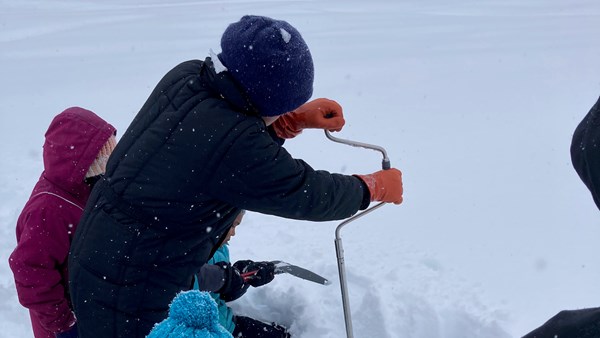31 May 2023

Youth-focused community and citizen science (CCS) is increasingly used to promote science learning and to engage historically marginalized and underserved communities in scientific research. CCS projects are frequently categorized according to their level of public participation and their distribution of power between professional scientists and participants, necessitating closer examination of how youth-focused projects are designed, and to what ends. In this study, we examined how two different CCS models, a contributory design and a co=created design, influenced two youth learning outcomes: science self-efficacy and science interest. We administered surveys and conducted post-program interviews with youth participating in two different CCS projects, each with a contributory and a co-created model, between 2018-2022 in Alaska. We found that youth participating in co-created CCS projects reflected more often on their increasing science self-efficacy than did youth in contributory projects. CCS program model did not influence youths’ science interest, which grew after participating in both contributory and co-created projects. Our findings suggest that when youth have more power, as in co-created CCS projects, they have greater confidence in their abilities to do science. Further, participating in CCS projects excites and engages youth in science learning, regardless of CCS program design.
Clement, S., Spellman, K., Oxtoby, L., Kealy, K., Bodony, K., Sparrow, E., & Arp, C. (2023). Redistributing power in community and citizen science: Effects on youth science self-efficacy and interest. Sustainability, 15(11). DOI: 10/3390/su15118876.